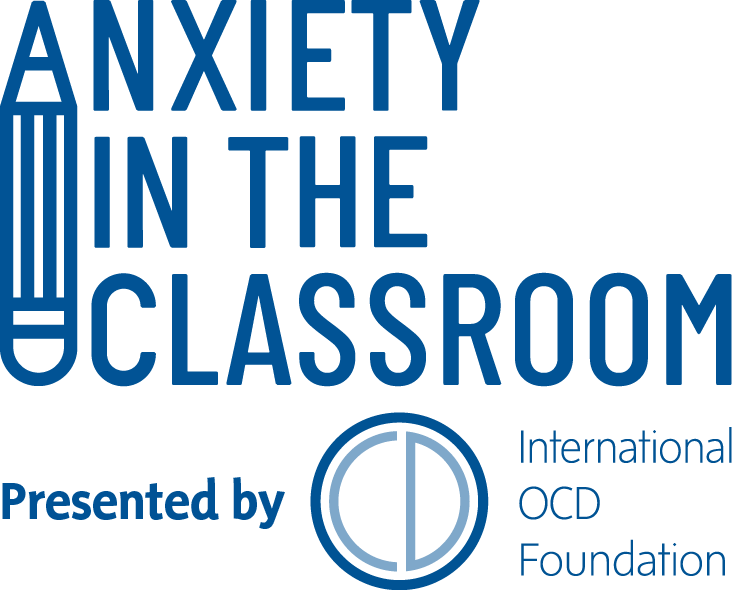Classroom Accommodations and Support Strategies
Accommodations for Students with Anxiety/OCD
Through classroom accommodations, teachers can help students with anxiety/OCD to keep their studies on track as they work to manage their disorder(s). Which accommodations might be most useful will depend on the specific symptoms the student experiences. Thus, it is good practice to involve the student, their family, relevant school staff, and their external treatment team (if applicable) when choosing an accommodation plan.
It is important to remember that accommodations are not treatment for anxiety/OCD. It might feel as if providing an accommodation to a student is “giving in” to their anxiety/OCD. You might also worry that it will be a “crutch” for the student that will prevent them from getting better. This is not the case — accommodations are meant to be temporary aids to students while they progress through their treatment. As students get their anxiety/OCD symptoms under control, teachers can alter and/or remove classroom accommodations entirely.

Accommodation Example: Strategies for Over Anxious Students
In this video, Mary Kathleen Norris, LMHC, talks about strategies that teachers can use with overly anxious students.
Read below for additional information about why accommodation strategies are useful and how teachers can use them for specific situations where anxiety/OCD may pose obstacles.
How Classroom Accommodation/Support Strategies can Help
The accommodation and support strategies outlined in this section may be helpful in two main ways:
- They allow students with anxiety/OCD to function in the school setting.
- They help students with anxiety/OCD to stay in school.
Chronically missing school — whether due to overwhelming anxiety/OCD symptoms or the fear of experiencing them in the school setting — can lead to school avoidance. Providing students with accommodations and support in the classroom and school can minimize stress for students with anxiety/OCD and help prevent school avoidance.
Accommodations/Support Strategies in the School Setting
There are various situations at school where accommodation and support strategies can be used to help children with anxiety or OCD manage.
Accommodation Example: Strategies for Re-reading
In this video, Mary Kathleen Norris, LMHC, talks about strategies that teachers can use with anxious students who re-read.
Read below for additional accommodation strategies that teachers can use for specific situations where anxiety/OCD may pose obstacles.
Below are specific situations that students with anxiety and/or OCD may find more difficult in the school setting. Click the plus sign to the right of each situation to view the sample accomodations and support strategies.
Accommodations/Support Strategies Around Specific Topics or Themes
Children with anxiety or OCD may require accommodations around certain topics or themes such as contamination, doubting, and procrastination.
Below are specific topics or themes that students with anxiety and/or OCD may have difficulty with. Click the plus sign to the right of each situation to view the sample accommodations and support strategies.

Accommodations/Support Strategies Around Specific Social/Emotional Issues
In addition to the above, children with anxiety or OCD may also require accommodations around social and emotional issues such as self-esteem and social interactions.
Accommodation Example: Strategies for Socially Anxious Students
In this video, Mary Kathleen Norris, LPC, talks about strategies that teachers can use to help socially anxious students.
Read below for examples of accommodation strategies around specific social/emotional issues.
To watch a video about specific accommodation strategies for over-anxious students, click here.
Below are specific social/emotional issues that students with anxiety and/or OCD may have difficulty with. Click the plus sign to the right of each situation to view the sample accommodations and support strategies.
Culturally Mindful Accommodations/Support Strategies for BIPOC Youth
Educators are uniquely positioned to provide accommodation and culturally mindful support strategies that can help BIPOC youth manage anxiety, OCD, or stress symptoms.
Read on for additional accommodation strategies that teachers can implement to support BIPOC youth:
- School staff can promote racial pride amongst students, increase awareness and acknowledgment of race, and reduce the consequences of racial trauma by creating safe spaces within the classroom that impart messages of diversity and inclusion.
- Learn about the impacts of history and systemic racism and use cultural references that will resonate with your students.
- Be mindful of expressing bias or differential treatment against children of color (e.g., increased surveillance or discipline, etc.).
- Create meaningful and authentic relationships with BIPOC students and families. Provide support to the student’s caregivers, especially those who may seem disconnected from school.
- Encourage and empower students within the classroom and their community. Helping students feel empowered to exercise their agency can promote healing from racism-based trauma.
- Promote student-centered curriculum development and listen to the voices of students from underrepresented groups.
What if they aren't even coming to school?
School avoidance can be a common issue for students with anxiety/OCD. The School Avoidance Alliance has come up with an intervention roadmap for educators to help bridge the gap with avoidant students and work to get them back into the classroom. Click here to learn more.
When Should a 504/IEP Be Considered?
In addition to the strategies mentioned above, your student's OCD or anxiety symptoms may qualify as a disability if they are severe enough that they impact their ability to learn. In these cases, the student who is in public school is eligible for a 504 Plan or an Individualized Education Plan (IEP). Learn more about 504s/IEPs.




